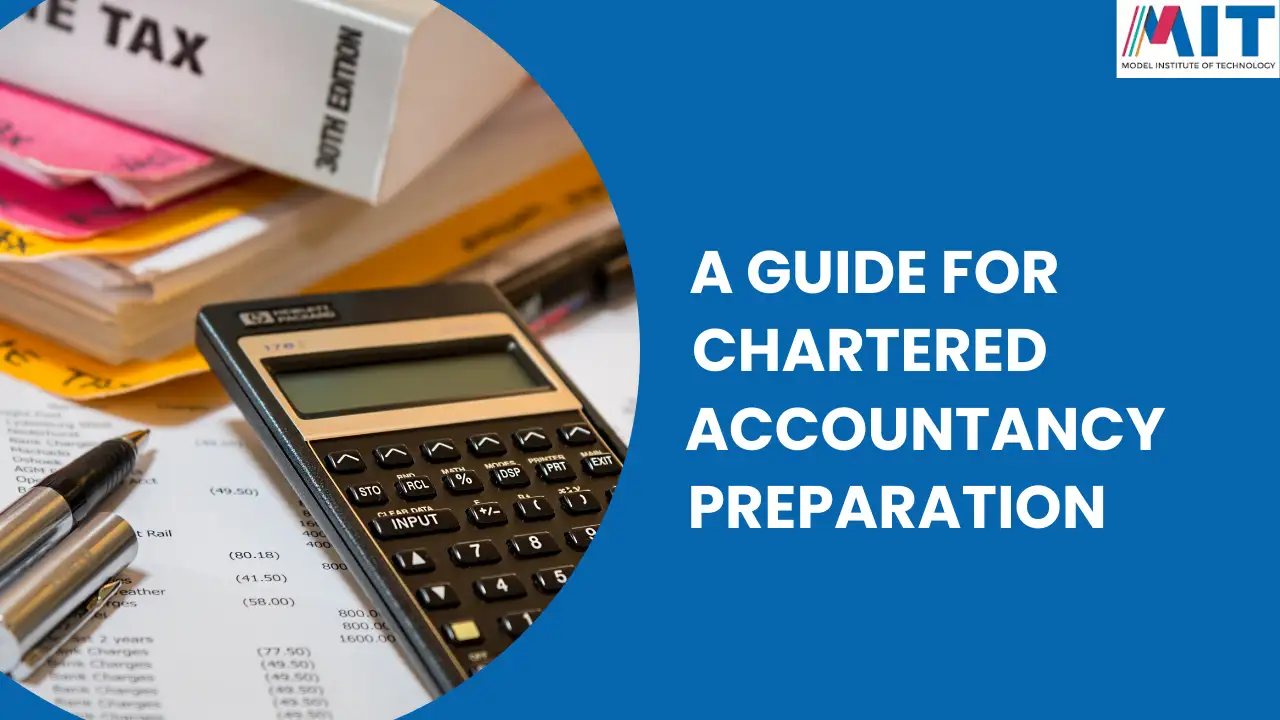
August, 12, 2025
MIT Nepal
Chartered Accountancy(CA) is a professional course designed to prepare individuals for professions such as expert accountants, auditors, and financial advisors.
The course is regulated by the Institute of Chartered Accountants of Nepal (ICAN). The course includes in-depth knowledge of accounting, taxation, auditing, financial management, and corporate laws.
If you are someone who has strong analytical and numerical skills, a detail-oriented nature, are interested in the field of finance, accounting, auditing, or taxation, with problem-solving and logical reasoning ability, you might want to consider the course.
There is no traditional entrance exam you need to pass to enroll in the CA (CAP-1/ Foundation) Course under ICAN.
However, there are certain requirements you have to meet:
Scored at least 40% marks or a minimum GPA of 2.0 in +2 exams
Students awaiting their grade 12 exam results are also allowed to register for the course on a provisional basis that their final grades will meet the minimum requirement.
However, you are required to pass an online eligibility test after registration. This usually takes place 3 months ahead of the exam.
Understanding the course
The course is divided into three levels:
| Level | Duration | Subjects |
CAP-I (Foundation level) | 6 months |
|
CAP-II (Intermediate Level) | 9 months | Group I:
Group II:
|
| CAP-III | 3 years (with articleship) | Group I:
Group II:
|
The total cost for the CA course ranges from Rs 4 lakhs.
The registration fee for the foundation level is Rs 27,500. It can be paid fully or in installments of Rs. 15,000 initially, and the remaining Rs. 12,500 within 3 months.
CAP-II level usually costs Rs 32,000. It also has the option to be paid fully or in installments.
The fee for the CAP-III level is Rs 40,000. It can be paid fully or in installments.
The CA course is infamous for being among the most rigorous courses. You’ll have to build self-discipline and need to put in consistent effort. Some of the tips that might guide you are:
1. Understand the course
Look into the course structure, the modules taught, and their basic overview. Also, investigate how each subject should be approached.
This gives you a head start, and also might help you decide if it is the right course for you.
2. Start with preparation for CAP-I.
The subjects you need to study for the CAP-I are mentioned above.
Find books and other course materials you will need to prepare for it.
Join a reputed coaching institute to help you guide through this journey. Some of the reputed institutes are Team SCA, Grow and Shine, Accounts Academy, and CMC Nepal. These institutions provide guidance, study materials, mock tests, and structure.
3. Make a routine
You are recommended to start your preparation right after you complete your grade 12 exams.
You should dedicate at least 4-6 hours daily. Find a routine that works for you.
Determine when you study best- nighttime, daytime, or morning.
Be sure to study the most demanding topics in those time blocks and do a light revision apart from them.
4. Focus on Key Skills
You need to have a strong foundation in mathematical and analytical skills.
Make sure you have a clear understanding of basic accounting concepts, practice reading, and comprehension.
5. Practice Past Papers and Mock Tests
Solve old question papers and model sets. These help you be familiar with the exam pattern, and you’ll know what kind of questions can be expected.
You will also get a better overview of what topics you need to focus more on and what you know well.
Also, take mock tests under timed conditions.
You will learn how to manage your time during the exam and complete all the questions asked.
6. Do not lose motivation.
It is well known that CA is a challenging course, and there will be days when you feel like giving up.
Push through those moments and know that being consistent in your studies is the only way out.
So, do not lose motivation and push through those low moments.
Another popular choice for individuals interested in business and finance is the Bachelor of Business Administration (BBA).
BBA is a four-year undergraduate program that focuses on business and management studies.
Finance, marketing, human resources, accounting, and management are the main focus areas of the course, with emphasis on both theoretical and practical knowledge through case studies, internships, and projects.
Both courses, CA and BBA, cover subjects related to accounting, economics, business law, financial management, and organizational behaviour.
BBA, however, provides a broader understanding of how businesses operate across various departments like marketing, HR, and operations.
It also includes foundational accounting and finance topics, the primary focus areas of CA.
The major difference between the two courses is that BBA is an academic degree that focuses on management, marketing, and general business concepts, while CA is a specialized professional course that focuses on accounting, auditing, and finance.
Also, BBA is generally considered to be easier and academic in comparison to CA, which is a more technical and challenging degree.
A great institution for studying the BBA course in Nepal can be the Model Institute of Technology (MIT).